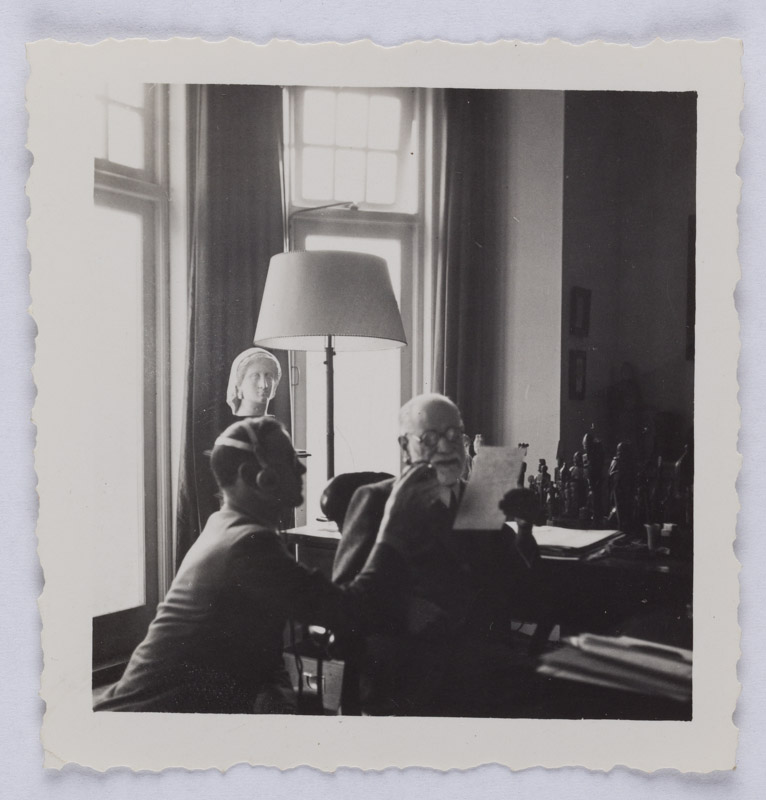In 1938 Sigmund Freud recorded a speech for the BBC. It remains one of the few recordings ever made of his voice.
Anna Freud was first contacted by the Recorded Programmes Executive at the BBC in November 1938. They wrote to her to request her assistance in setting up an appointment to record Freud’s voice. As Freud was very old and ill, they did not request a live broadcast to the general public. Rather, they asked if he’d be interested in recording his voice for their archive.
The recording was made the following month in the study of Freud’s London home. Freud had written himself a short script to read:
I started my professional activity as a neurologist, trying to bring relief to my neurotic patients. Under the influence of an older friend and by my own efforts I discovered some new and important facts about the unconscious in psychic life, the role of instinctual urges and so on.
Out of these findings grew a new science, Psycho-analysis, a part of psychology and a new method of treatment of the neuroses.
I had to pay heavily for this bit of good luck. People did not believe my facts and thought my theories unsavoury. Resistance was strong and unrelenting. In the end I succeeded in acquiring pupils and building up an international Psycho-Analytic Association.
But the struggle is not yet over.
This is the written text that Freud read from – when read aloud there were some minor differences. The recording was placed in the BBC’s historical archive and a copy was requested by Anna Freud. Sigmund Freud, however, was uninterested in hearing his own voice and turned down the offer of a copy.

Sigmund Freud recording his voice for the BBC, 1938 [IN/0065]



